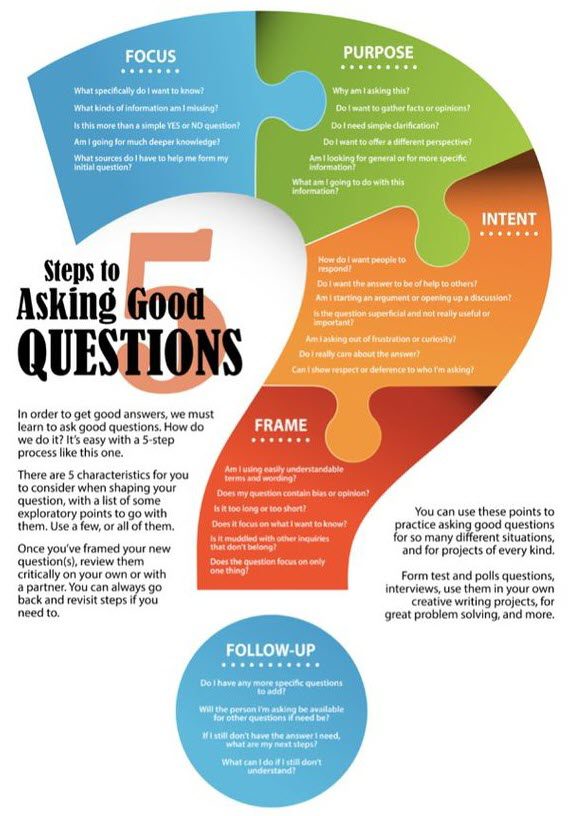
National Association of Christian Ministers Summary Series: Theology
By Michael Mooney, NACM Exec. Elder
Some people have trouble understanding the value, or power of a question. However, a question is by far one of the most powerful ways in which a person can think. Consider for a moment the power of a few questions:
-
- When I die, will I go to heaven?
- Is God going to judge the world?
- Is my money soundly invested in the stock market?
- Do I have enough insurance?
- Is my spouse cheating on me?
- Will my children grow up and become model citizens?
- Where did I come from, where am I going, why am I here?
As you can see, a question has the power to stimulate the mind in such a way that is both positive and negative. It can take the mind captive and fill it with fear, or it can liberate it with knowledge, wisdom, and new understanding. Understanding the power of a question, it seems reasonable to have a system by which to generate them. Listed below are five methods of questioning that will help us to understand why questions are important. If you apply these five questions to every topic in life you will have a system to analyze and understand the value of questions. This system will prove invaluable in the study of Theology.
Semantics: What does something mean?
-
-
- Example: What does it mean to love my neighbor? (The fancy word for this type of thinking is Semantics)
-
Epistemology: What does it mean to “know” something as opposed to merely having an opinion?
-
-
- What do we know?
- On what can we base certainty?
- How do we know things?
- How do we manage with uncertain knowledge?
-
Ethics: What is right and wrong and the motivation behind choosing either behavior? Why am I my brother’s keeper?
-
-
- Example: Murder is a crime against humanity. Murder is wrong. Why was the murder committed? The motivation behind the murder was envy?
-
(The fancy word for this type of thinking is Ethics.)
Axiology: What is the value of choosing a right or wrong behavior?
-
-
- Example: Stealing is wrong because it hurts others. For this reason I will not steal. Because I do not steal the value of my decision is that many people in the world will not be harmed by my actions.
-
Philosophy: What is the wisdom that I can gain from experiencing, analyzing, or at least considering something?
Theories of Truth offer further insight by which to expand your questions:
-
-
- Pragmatic Theory -Truth is what works.
-
-
-
- Empiricist Theory -Truth is what we can experience or observe.
-
-
-
- Rationalist Theory -Truth is what can be proved by reason.
-
-
-
- Coherence Theory -Truth is harmony among a set of ideas.
-
-
-
- Emotivist Theory -Truth is what I feel.
-
Note: the above are “theories” of truth. They are not necessarily “sources” of truth. Their value is in the ability to gain insight into how people interpret truth.
Reference: Adapted from The Handbook of Christian Apologetics, by Kreeft and Tacelli.
Reflective Question for Personal Growth:
Read the below verse:
“And you will know the truth, and the truth will set you free.” (Joh 8:32 ESV).
Now, write five questions about the above verse using the five disciplines above: Semantics, Epistemology, Ethics, Axiology, Philosophy.





